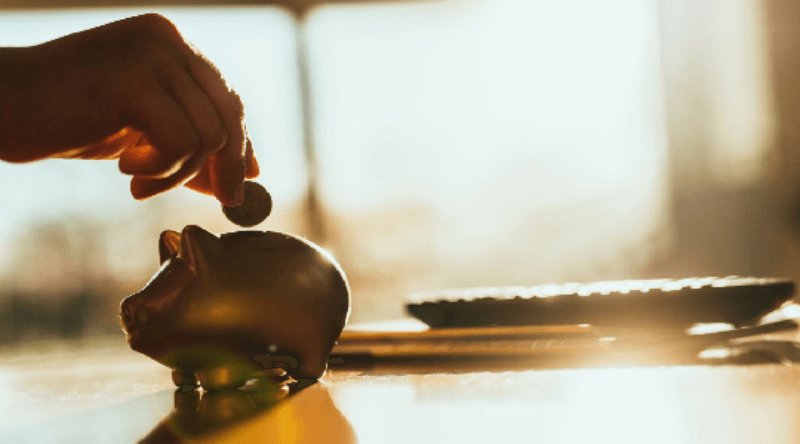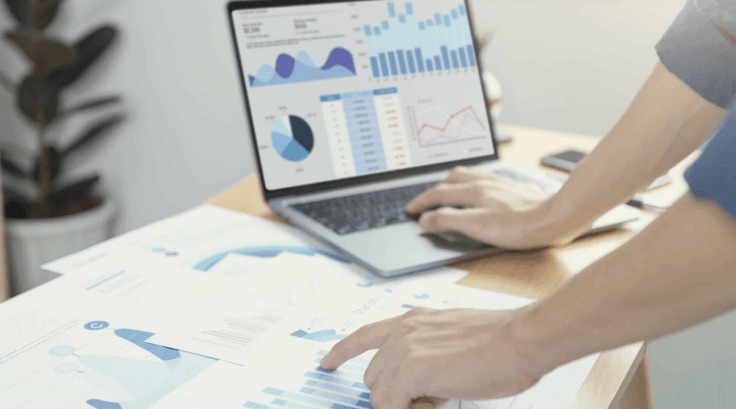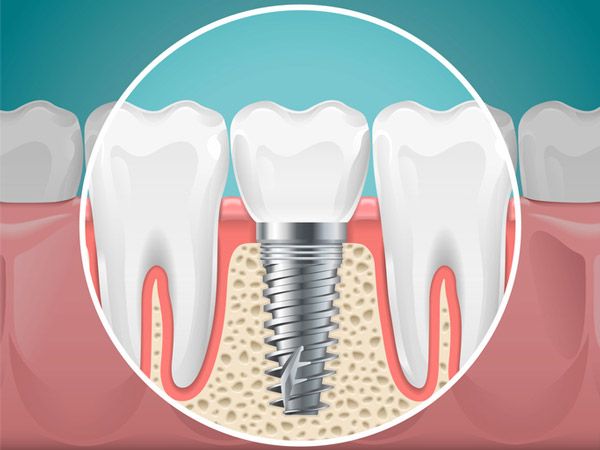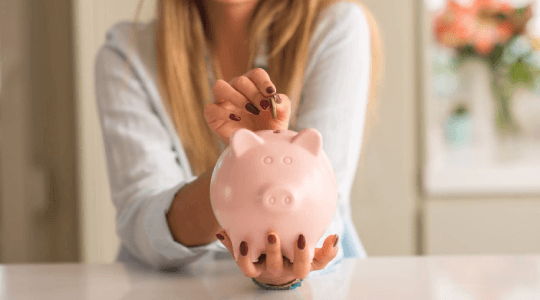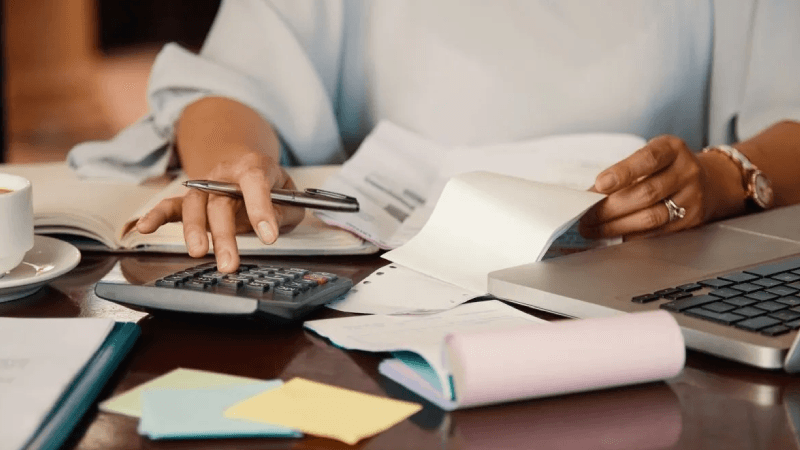
Here are some tips to help you achieve this:
- Evaluate your debts: Make a list of all your debts and organize them in order of interest and amount. This will help you have a clear idea of how much money you owe and how to prioritize your payments.
- Create a budget: Establish a monthly spending plan that includes all your income and expenses. Be sure to set aside an amount for the minimum payment of your debts.
- Reduce expenses: Look for ways to save on your daily expenses, from taking your lunch to work to canceling services you don't use often.
- Prioritize payments: Make sure you always pay the minimum amount on all your debts, but focus on paying the ones with the highest interest rate first.
- Negotiate with lenders: If you are having difficulty making your payments, talk to lenders and negotiate a payment plan that is more manageable for you.
- Look for additional sources of income: Consider working overtime or looking for a side job to increase your income and speed up the repayment process.
Getting out of debt can be a gradual process, but with patience and perseverance you can improve your financial situation in the long run.
Analyze your expenses
The first key to getting out of debt and improving your financial situation is to thoroughly analyze all of your expenses. Make a list of all fixed expenses (rent, bills, insurance, etc.) and variable expenses (shopping, entertainment, travel, etc.).
Then, identify those expenses that you can reduce or eliminate. Do you really need that monthly subscription service? Could you save money on transportation by biking or walking instead of always using the car?
It is also important that you set a monthly budget and commit to following it. This will help you control your spending and keep you from going further into debt.
Create a budget
One of the most effective tools for controlling your finances and getting out of debt is to create a budget. A budget will allow you to clearly see how much money is coming in and going out each month, and will help you identify areas where you can reduce expenses.
To create a budget, start by making a list of all your monthly income and expenses. Include everything from your rent payment to your morning coffee. Next, divide your expenses into categories (e.g., housing, transportation and food). Allocate a specific amount to each category and make sure you're not spending more money than you have allotted.
Keep your budget up to date and adjust it as needed. If you find that you are spending too much money in a certain category, try to reduce expenses or readjust your budget to reflect reality.
Create an emergency contingency fund and avoid using your credit cards to finance everyday expenses. With a sound budget and some good financial practices, you can get out of debt and improve your financial situation in the long run.
Set financial goals
One of the first steps to get out of debt and improve your financial situation is to set clear and concrete goals. Without defined goals, it will be difficult to know where you want to go and how to get there.
Financial goals can be short, medium or long term. For example, a short-term goal might be to pay off a credit card within 3 months. A medium-term goal might be to save for a down payment on a house within 2 years. And a long-term goal might be to have an emergency fund that covers 6 months of your basic expenses.
When setting financial goals, make sure they are specific, measurable, achievable, relevant and time-bound. In addition, it is important that you write them down and review them periodically to evaluate your progress.
Remember that setting financial goals helps you focus on what really matters and make smarter decisions with your money.
Delete high-interest debts first
It's important to prioritize high-interest debts, since they are the ones that are costing you the most. If you have several debts, identify which ones have the highest interest rate and focus on them to pay them off as soon as possible.
To make it easier, you can make a list of all your debts, ordering them by their interest rate, from the highest to the lowest. This way, you will have a clear picture of where to start working.
Once you have paid off the first high-interest debt, move on to the next one until you have completed all of your financial obligations.
Remember that the sooner you start paying off your debts, the faster you will be able to get out of debt and improve your financial situation.
Look for ways to generate additional income
One way to improve your financial situation is to look for ways to generate additional income. Some options may include:
- Working overtime or looking for another part-time job.
- Selling unwanted items online or at a garage sale.
- Perform freelance work or consulting services in your area of expertise.
- Start an online or physical business.
- Renting out a room in your home on Airbnb.
No matter which option you choose, every little bit of extra you can earn can help pay off your debts and improve your financial situation in the long run.
Reduce your unnecessary expenses
One of the keys to improving your financial situation and getting out of debt is to reduce your unnecessary expenses. Analyze your expenses and make a list of everything that is not essential, such as magazine subscriptions or services you don't use, impulse purchases or going out to expensive restaurants.
Once you have identified these expenses, try to eliminate or minimize them. You can cancel your subscriptions, limit your impulse purchases and cook at home instead of eating out.
It's also important that you learn to differentiate between what you really need and what you simply want. While it's understandable to want to indulge from time to time, you should be aware that every unnecessary expense takes you a little further away from your goal of getting out of debt and improving your financial situation.
Remember that reducing your unnecessary expenses does not mean completely depriving yourself of what makes you happy, but being aware of your financial priorities and finding a balance between your needs and wants.
Use a credit card responsibly
Credit cards can be very useful, but they can also be dangerous if not used correctly. To avoid falling into unnecessary debt, it is important to follow a few tips:
- Don't spend more than you can afford: before making a purchase with your card, make sure you will be able to pay it off in full at the end of the month.
- Don't use the card for unnecessary expenses: reserve the card for important and urgent purchases.
- Pay on time: avoid late payments to avoid accumulating interest and additional charges.
- Don't have too many cards: it is easier to control your expenses if you have fewer cards.
Remember that responsible use of a credit card can help you improve your credit history and get better financing options in the future.
Seek financial help and advice if needed
If you find yourself in a complicated debt situation and don't know how to handle it, don't hesitate to seek professional help. A financial advisor can guide you in making a payment plan as well as managing your personal finances.
Don't be ashamed to ask for help, many people go through financial difficulties and it is not always easy to get by without outside support. In addition, hiring a financial advisory service can be a long-term investment, as you will learn how to better manage your finances and avoid future problems.
Remember that your financial health is very important and deserves to be taken care of. Do not hesitate to seek help if necessary.


